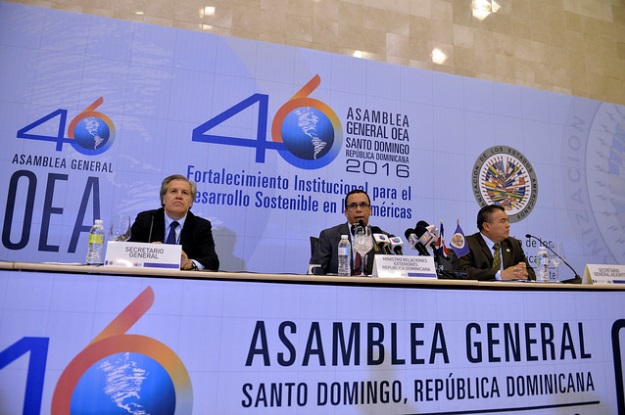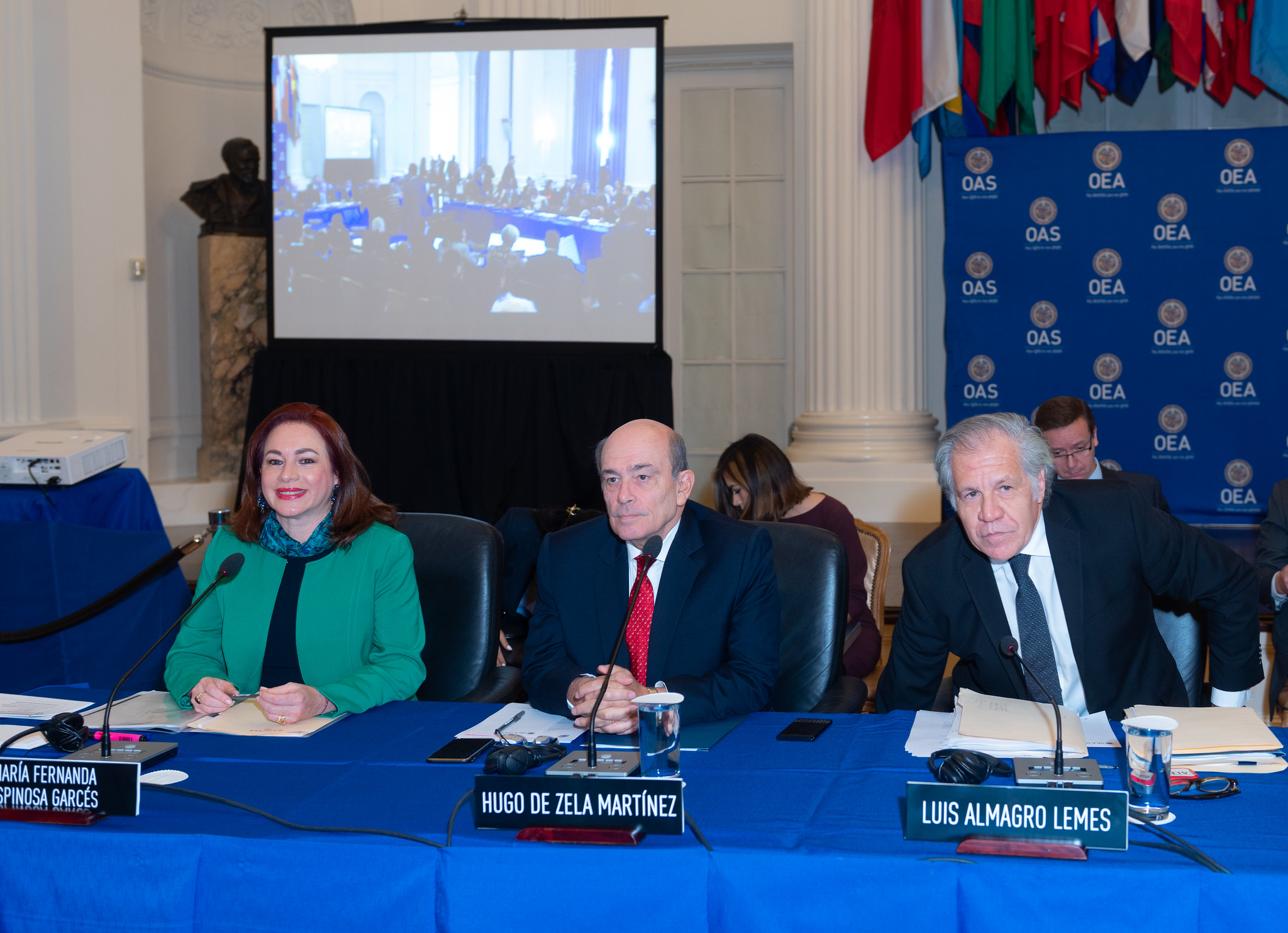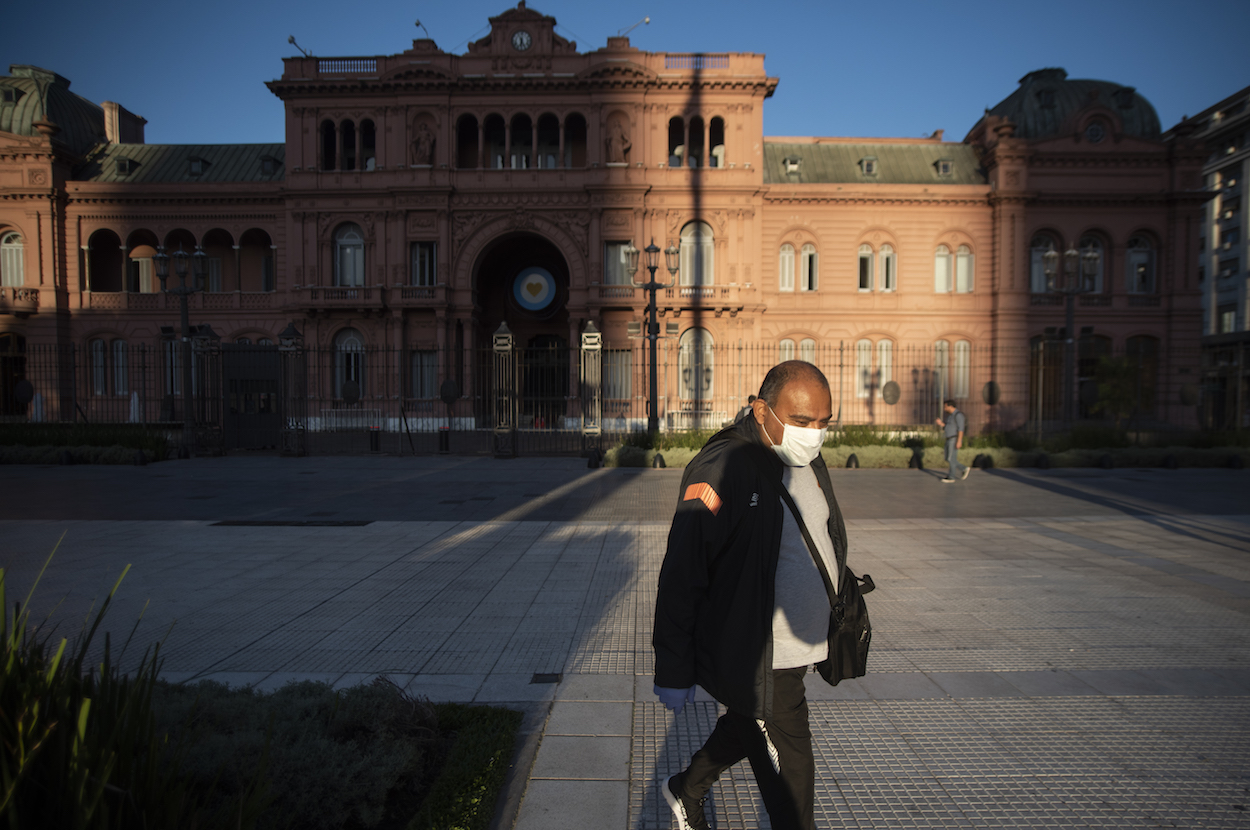Sign up here to get This Week in Latin America delivered to your inbox every Monday.
Leaders Gather: The Organization of American States (OAS) will hold its 46th annual assembly today through June 15 in Santo Domingo, with a political crisis in Haiti expected to take center stage. Haiti has missed repeated deadlines to elect a new president and its interim leader, whose mandate ends Tuesday, has suggested he will remain in charge until rescheduled elections take place in coming months. OAS Secretary General Luis Almagro has also made Venezuela a priority of late, calling for the government to bereprimanded for “grave alterations of democratic order.” Though not on the official agenda, some expect Venezuela’s political and economic crisis to feature at the summit; a June 23 vote on whether to invoke the OAS’ democratic charter against the country may prove more consequential.
Extra Time in Mexico: Mexico’s congress will hold a special legislative session from June 13-17 to consider pending proposals on medical marijuana, changes to the police force and penal reforms. Also on the docket are laws to implement an anti-corruption system that was approved last year. Legislators from the ruling PRI came under fire last month over claims they were trying to water down or block the anti-corruption measures, which included the so-called Ley 3de3, a citizen’s proposal that would have forced politicians and others to disclose financial assets, tax returns and potential conflicts of interest. PRI officials said they would work to find points of agreement on the anti-corruption laws during the special session; the opposition PAN, which fared well in state elections last week, also expressed its desire to pass the legislation.
Rousseff’s Defense: Brazil’s Federal Accounts Court (TCU) on Wednesday will begin judgment of suspended President Dilma Rousseff’s alleged manipulation of government accounts, an issue for which she is currently facing impeachment. The TCU, whose determination last October that Rousseff broke fiscal rules gave impetus to the current impeachment trial, is analyzing 19 new irregularities in the government’s 2015 budget. If the TCU calls for a full session on the issue, then Rousseff would have 30 days to respond. The TCU cannot itself punish Rousseff, but its findings could give weight to political opponents calling for her ouster in the Senate impeachment trial, which will continue hearing testimony all this week.
Paro Agrario: Rural, indigenous and Afro-descendant farmers in Colombia will meet June 17 with government ministers after agreeing Sunday to lift a strike that for nearly two weeks had shut down some of the country’s main transportation corridors. Blockades and surrounding protests left at least three people dead and led to concern over possible human rights abuses by state security forces. Among the protesters’ list of grievances were questions over the government’s commitment to rural development projects and farmers’concern over their role in post-conflict Colombia. The agreement came just days after FARC and government negotiators announced a crop substitution program for rural coca farmers, part of stalled peace talks that appear (again) to be entering their final phase.
Economy in Brief
The World Economic Forum for Latin America will take place in Medellín from June 16-17.
A U.S. Supreme Court ruling will prevent Puerto Rico’s public utilities from independently restructuring part of their debt.
Analysts say inflation in Argentina could reach 40 percent in 2016.








